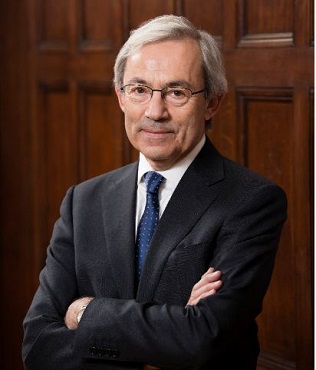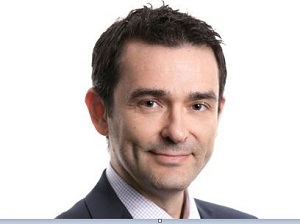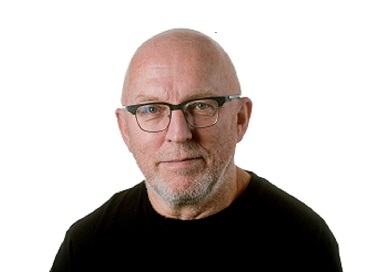The Future of Work
Anna Kynthia Bousdoukou
On Thursday, 29 October, the SNF Dialogues held an online discussion about our changing modes of working, the impact of technological advances like automation on workplaces, and the rise of artificial intelligence. Collectively, these developments are catalyzing major shifts in how we think about work now and what work will look like in the future. The discussion featured Assistant Professor at the European University of Cyprus School of Law, Stamatina Yannakourou, author and Digital Lead at Willis Towers Watson, George Zarkadakis, and Nobel laureate and Regius Professor at the London School of Economics, Christopher Pissarides.
The most serious problem we face today around new technologies is not the loss of jobs, but the inequality that new technologies inherently lead to in the marketplace. This is due to globalization, and the fact that large companies become more productive and competitive with new technologies than ever before.

Christopher Pissarides, Nobel laureate and Regius Professor at the London School of Economics
Speaking on the importance of dialogue between the state, workers, and companies, Christopher Pissarides asserted that “the dialogue must be continuous, because, that way, both the employee and the employer feel that they are part of the team. The companies that do best are the ones that stress both the viability of their strategy and collaboration between employer and employee.” On the introduction of robots in the workplace, Pissarides said, “Unfortunately, or fortunately, no matter how robots are introduced, a country’s national income will increase. What will change is wealth distribution, because, if there is no cooperation between robots and employees, the employees will end up with lower incomes, and the robot owners with much higher ones.”
Christopher Pissarides on the future of work
We must approach artificial intelligence as a multiplier of human productivity and intelligence. This is the great opportunity, which we must not be afraid of.

George Zarkadakis, Author and Digital Lead at Willis Towers Watson
On contemporary models of working, George Zarkadakis said that “there can be a more participatory work model where employees, in addition to their pay, also receive a dividend on the market value of the company.” When asked whether Greek companies are ready to adopt new technologies and ensure good jobs for all, he replied that “the major problem for Greek companies has always been the Greek state, which has held them back from being competitive.”
George Zarkadakis on the future of work
Stamatina Yannakourou stressed that, “the crucial issue to negotiate right now is ensuring decent and safe jobs and working conditions. I think that the issue of security is at the top of the agenda.” Lastly, she emphasized that “employees are now called upon to specialize, re-specialize, and upgrade their skills. Continuous retraining and upskilling are required.” When asked about who will bear the cost of this, she replied that “the cost cannot be borne by only one party. The state certainly has an increased responsibility, as do companies, social partners, and individuals. In other words, the cost should be shared among multiple parties.”
Stamatina Yannakourou on the future of work
In a pre-recorded interview broadcasted during the webcast, Christiana Constantopoulou, Professor of Sociology at Panteion University mentioned that the “guaranteed eight-hour workday, as we knew it, no longer seems to be the rule. There is a gradual transition towards a dominant ‘work contract’ regime, which directly results in a temporary employee-employer relationship, increased insecurity, and the occasional involvement of employees in their workplace. In other words, there is a disengagement. Employees do not feel that they identify with their workplace.” Discussing workplace synergy between humans and machines, Konstantopoulou argued that, “in order for such synergies to exist, humans must inevitably obey the programming of the machines. This essentially means that there is no possibility of a different conception or execution of the required work which leads to one-dimensional thinking.”
Interview of Christiana Constantopoulou
Author and journalist Sven Egil Omdal also gave a virtual interview, during which he discussed the overall effect universal basic income could have on people. He said that “knowing that you will never fall beneath a certain economic level makes you a freer person. Free to explore your abilities, free to try out ideas and dreams you might have. And I think this will be a huge benefit to society.” When asked whether implementing it would be feasible, he said, “Society has enough resources to guarantee every citizen a minimum level of economic dignity. The rest is politics. This is not a question of financing, but rather of redistributing the resources that are already there.”
Interview of Sven Egil Omdal
Questions around the future of work will also be prominently featured in the conversations during the next SNF Nostos Conference, to be held on June 24 and 25, 2021. The Conference will focus on the complex, nuanced topic of Humanity and Artificial Intelligence, and will examine the dynamics between the two and how they manifest themselves in the areas of work, education, justice, history, and even wisdom.
Andrew Zolli, who is helping guide the conversation at the 2021 Conference, introduced some of the topics that will be discussed during the conference, via a brief video.
Andrew Zolli on 2021 SNF Nostos Conference
Highlights
In Brief
The SNF Dialogues are curated and moderated by Anna-Kynthia Bousdoukou and are held through the journalism non-profit organization iMEdD (incubator for Media Education and Development).
*The opinions expressed by Dialogues participants, whether officially representing institutions and organizations or themselves alone, at events, in articles, or in other audiovisual media are solely their own and do not necessarily represent the views of the Stavros Niarchos Foundation (SNF) or iMEdD. Speakers' remarks are made freely, without prior guidance or intervention from the team.




